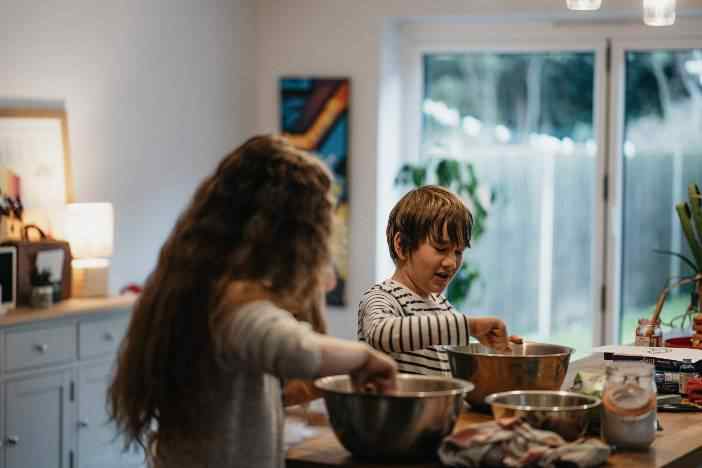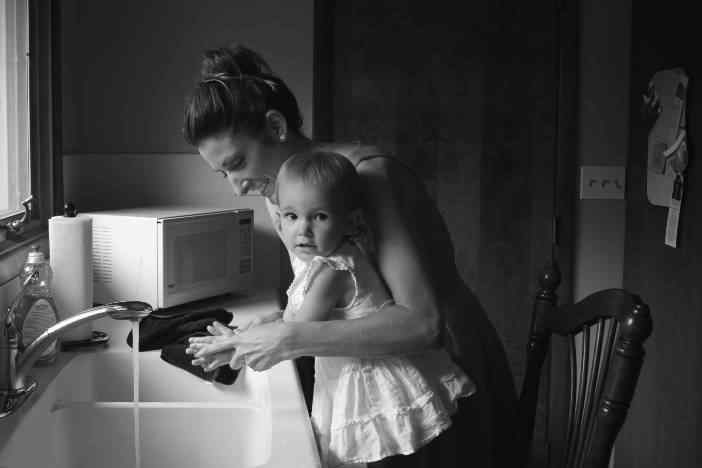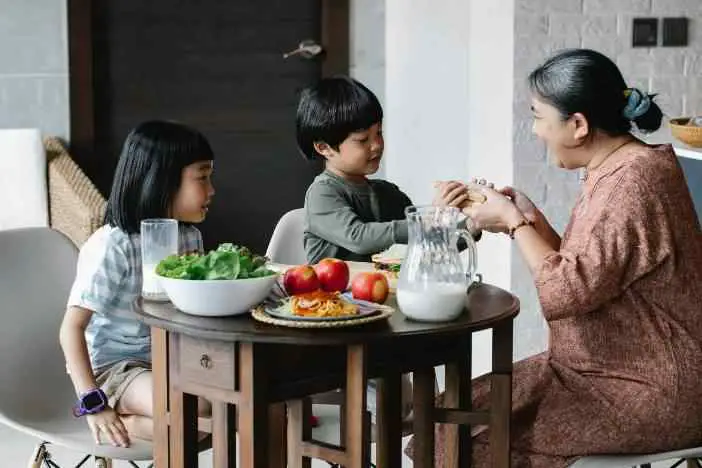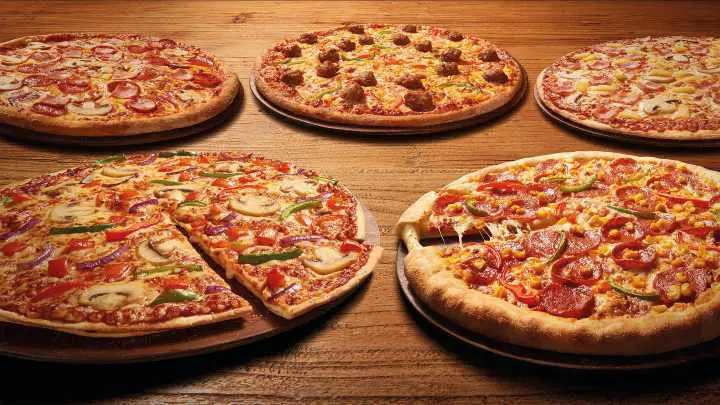There are lessons your children learn from you in the kitchen. Children are known to imitate what happens in their immediate environment. Your children are always ready to learn. They, directly and indirectly, practice what they see you do or what you tell them to do.
The beautiful thing about learning is that no one can take it away from you. What happens when you bring cooking experiences to the memory of your child. You give them one of the best legacies.
They concurrently learn how to apply the lessons to real lifeways and also how to make dishes by themselves.
Here are cooking lessons your children can learn from you.
1. Patience is valuable
An important virtue to pass on to your children is patience. In cooking, it is key. The value of patience is that it enables you to wait carefully for mistakes and correct them appropriately.
Even if you are a foodie, you cannot hurriedly eat raw food no matter how tempting. Every cook exhibit patience as the main recipe to cook any meal.
Your children learn from what you do in the kitchen. When they see you are always in a haste to make meals get done, it registers in their memories and they apply it unconsciously whenever they are in similar situations.
Hazards of impatience include getting burns, spoiling the broth, and so on. You do want your children to act in such a crude manner. Rather you teach by practice. Learning this makes your children tackle life activities patiently.

2. Cooperation
One of the lessons your children learn from you in the kitchen is cooperation or teamwork. Cooking in the home exemplifies cooperation. It enhances unity in the home. It teaches your children about the beauty of completion and not competition.
When your children learn the act of cooperation, it helps them cherish complementation from their friends and colleagues as they grow rather than always being eager to compete which might sometimes be toxic.
You can teach cooperation in your home by delegating duties to every member of the family before and during the process of cooking the meals.
SEE: Corporate Learning and Why it Matters
3. Balance
While it’s true you want to experience multiple tastes in every bite, the artistry comes with how you balance those tastes. If you taste one more grounded than the rest, consider adding a few or the entirety of the others to bring it into balance. If you can have every one of the four tastes present and adjusted, you have a splendid dish on your hands.
The same goes for tackling daily interactions and other work ethics. Giving your children the legacy of balancing when introduced to the kitchen is very vital.
4. Learn your niche
This is one of the most practicable cooking legacies to give your children. Your children through getting to know what food works for them, cook only what they love and in moments become a veteran in that dish.
Learning a niche in their daily activities is germane likewise. It makes them embrace a forte while refusing to be a jack of all trades which isn’t a good practice for success in life.
SEE: Unique Foods That Start With X
5. Time management
Time management in cooking requires foresight and planning. Organizing and setting up your cooking space can help you save time. To get capable in anything, you need to rehearse, again and again, and gain from the individuals who have harnessed the abilities you need to acquire

6. Mistakes do not mean failure
No matter the years of experience you’ve had preparing different dishes as a professional chef or cook, making some little mistake is inevitable. No matter what we choose to become in life, making mistakes sometimes is part of the journey.
When your children learn that mistakes do not mean failure, they embrace rejection as a stepping stone to higher opportunities. Just as mistakes are slightly not avoidable, rejection is an ingredient for life’s growth.
SEE: Tips to become great cooks at home
7. Be adventurous
Cooking is an inherent adventure and can teach your children some basic reasons to explore new opportunities, books, fields, and skills. Being adventurous in the kitchen is really fun, but it can also be a little scary for young kids. The point is that it’s important to try new things or take risks even when you’re not sure how they’ll turn out.
You never know what will happen until you put everything together, thus you can’t tell how your dish will turn out unless you give it a try. It’s all about putting yourself out there and letting things happen, and that’s the sweet spot for learning, in my opinion
SEE: Discovery Learning – [Definition, Benefits & Implementation]
8. Value of fulfillment and satisfaction
Allowing your children to join you in the kitchen help teach them the value of fulfillment, satisfaction, and being important. Whether they simply clear their dishes or set the table, they will always feel important that they are part of the food preparation.
While this may look insignificant to some, it actually an effectivity way to teach your kids how to get involved or participate in whatever important activities going on around them. In return, they will not feel among and not neglected.
9. Focus and safety
Another one of the lessons your children can learn from you in the kitchen is how to focus and stay safe while in the kitchen. Kids in the kitchen must be aware of their surroundings, therefore they must be present, focused, and mindful of safety procedures.
When they turn on a gas range, for example, they must comprehend and respect the open flame and gas flow. Teach kids how to stay safe near a hot stove, sharp knives, blender blades, spicy spices, and flames by teaching them how to focus.
SEE: Things To Never Do With Your Kitchen Knife
10. Healthy meals matter
Kids who know how to prepare their own meals resist the temptation to eat fast food or convenient junk food. By substituting healthier products for harmful ones, you may teach your children about nutrition in the kitchen.
You may also talk about how to prepare a balanced meal so that kids receive a little bit of everything, as well as the necessity of introducing functional foods like fermented foods.
11. Increase your kid’s mathematics knowledge
Have you ever thought that one of the lessons your children can learn from you in the kitchen has to do with mathematics? When you have to measure out those components or double a recipe, math becomes a crucial skill.
Anyone for fractions? If a recipe asks for something you don’t have a reference for, using the measuring spoons, cups, and quarts might be difficult. Assist your youngster with memorizing cups and teaspoons so that they can quickly double a recipe.
SEE: How to Measure Portions With Your Hands in Your Kitchen
FAQs
Why is involving children in the kitchen important?
Teaching children to cook not only helps them learn about nutrition but also teaches them to make better food choices and plan their meals more carefully.
Should your kids be in the kitchen with you?
Yes, because it makes your kids smarter
Conclusion
Although you may never have given much consideration to how you act in the kitchen, current research reveals that there are numerous things children learn from their parents when they are cooking together.
They develop patience and a sense of success, for example, when they complete a task. Whether or not you know it, your job in the kitchen is essential enough to teach your child crucial lessons.
The next time you’re standing in the kitchen and your child is with you, look at them and see how they are interacting with you. More than likely, it’s by helping, by watching, and by learning. They absorb what you do, they want to be like you, they want to connect with the things that interest or scare them, and they are building the necessary life skills in the process.
Being in the kitchen can be a great way to teach your children about life and get everyone involved in the fun. It’s all about how you approach this time together, so take some time to think about how you can make it even better from where you are now. The next family meal could be interested than you realize.
If you’re still in doubt, see the important reasons your children needs to learn some life skills.
I hope you found this article helpful. Thanks for reading






